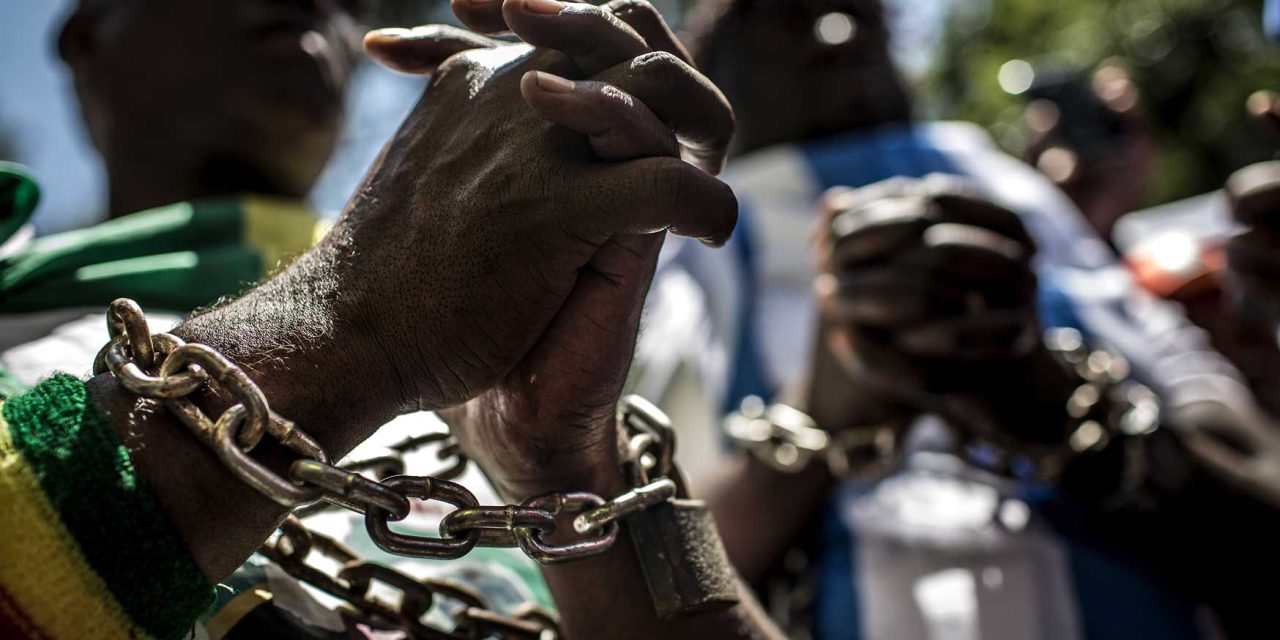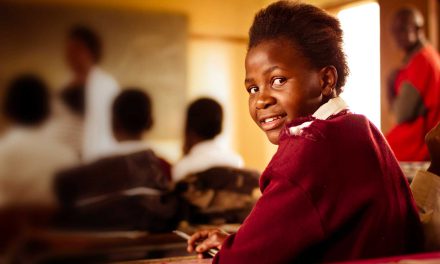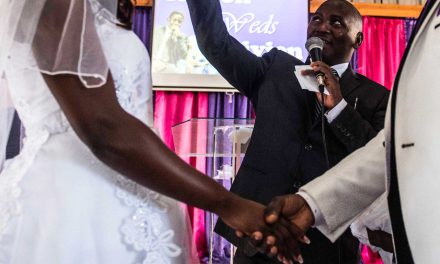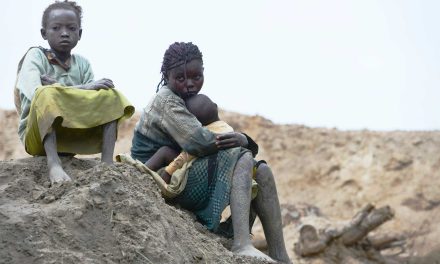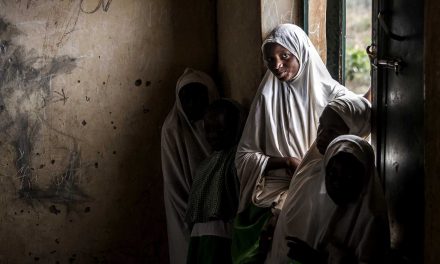While people trafficking is a global phenomenon that affects virtually every part of the world, it is endemic in Africa, with Africans making up an estimated 9.2 million victims. Of these victims, the majority are children, specifically girls, who are the most vulnerable members of society, constituting a gross violation of fundamental human rights.
The children trafficked are often victims of poverty, illiteracy, poor social systems, political and family instability, among others, which leaves them vulnerable to traffickers who lure potential victims with the promise of financial gain, lucrative jobs, access to education, basic necessities, and a better future. These promises are also used to manipulate parents, fuelling voluntary and cooperative trafficking.
Within Africa, the trafficking of children is most prominent in West Africa, with more than 50% of victims in this region being children. This makes West Africa the region with the highest number of child labourers in the world, with most of them found in Burkina Faso, Benin, and Cameroon. This includes children forced to work on farms, mines, on the streets, or in markets where they are forced to sell various products, which in some cases includes peddling drugs.
Young girls are also often trafficked for domestic labour. In eastern Africa (specifically Ethiopia) and southern Africa, the most common reason children are trafficked is for labour. The second most common reason trafficking occurs is for sexual exploitation. Children are forced into prostitution, pornography, or used as sex slaves. Sex exploitation and practices like child marriage are sometimes borne out of cultural beliefs – such as the belief that having sex with virgins cures diseases like HIV/AIDS. These beliefs are common in Kenya, Zimbabwe, and Ghana.
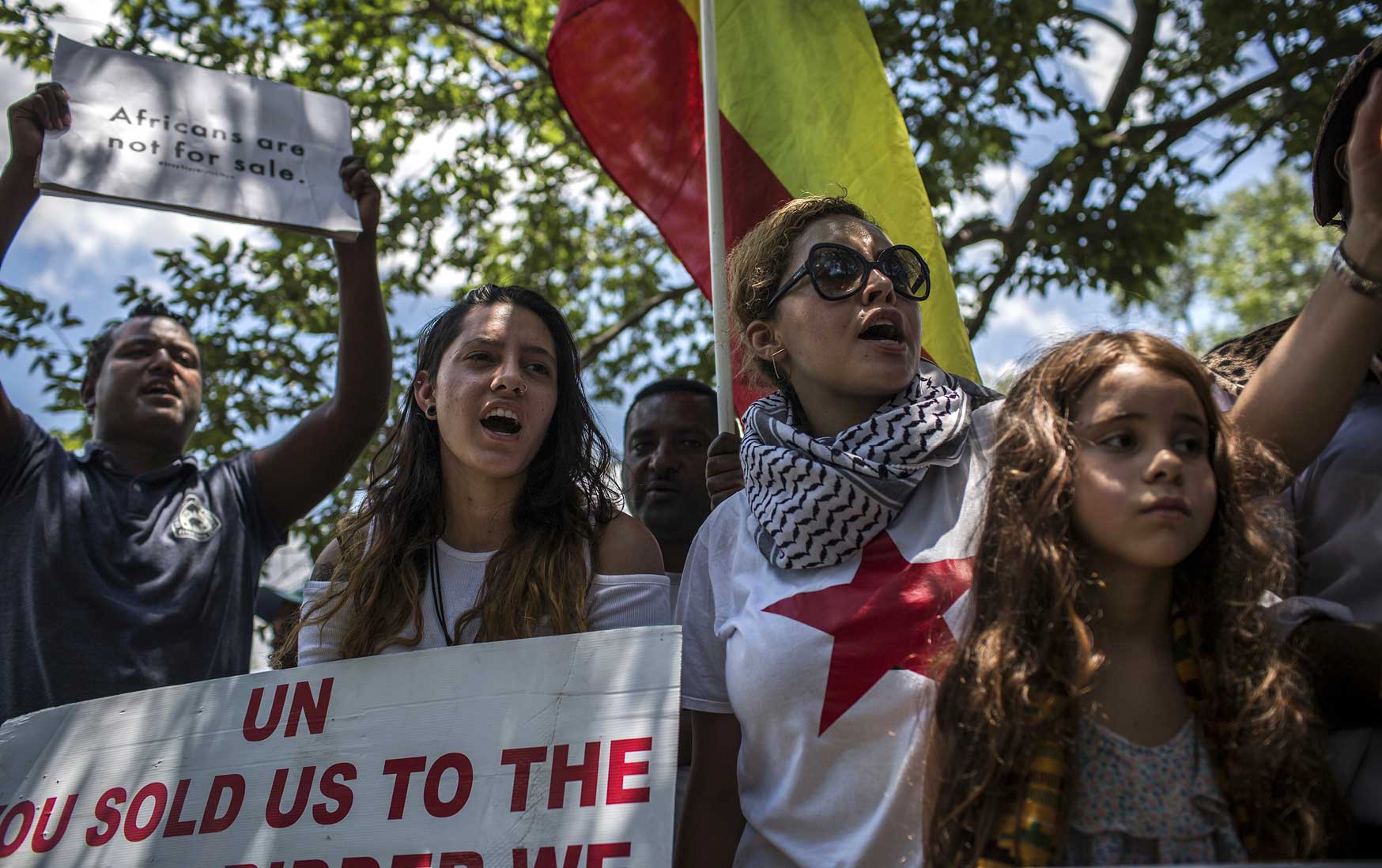
Members of the Africa Diaspora Forum (ADF), civil society organisations, churches, trade unions and other coalitions shout slogans during a demonstration against the slave trade and human trafficking in Libya in December 2017 at the Union Buildings in Pretoria, South Africa.
Other forms of child trafficking include recruitment, forced or otherwise, of child soldiers, which occurs in countries plagued with extremist groups, such as Nigeria and Mali, where children are forced to take part in criminal violence. Children are also exposed to organ harvesting and drug trafficking.
The trafficking of children has a devastating effect on the health of a child, ranging from physical, mental, and sexual health issues such as PTSD, depression, STDs, unwanted pregnancies, and broken or disfigured body parts. These children are also left feeling stigmatised and removed from society.
In recognition of the growing rate of trafficking and the impact it has on children, more sub-Saharan African countries have introduced specific measures against people trafficking; the number has increased from two countries in 2002 to 38 in 2020, in line with the Trafficking in Persons Protocol under the United Nations Convention Against Transnational Organised Crime. Additionally, there has been the ratification of multiple instruments such as the UN’s Protocol to Prevent, Suppress and Punish Trafficking in Persons, and the Convention on the Rights of the Child.
In line with policies, in 2020, the African Union launched a “Ten Year Action Plan” for the eradication of child labour, forced labour, human trafficking, and modern slavery on the continent. Also, in countries such as South Africa, Kenya, and Mali, national plans to counter trafficking have been developed.
In Ghana and Nigeria, specialised police forces have been institutionalised to deal with trafficking, while other countries are carrying out the specialised training of law-enforcement agencies. With this training, law-enforcement agencies are partnering governments, NGOs, and civil society to educate and raise awareness in communities about the menace of people trafficking, the laws in place, and the provision of proper care available to vulnerable and trafficked victims.
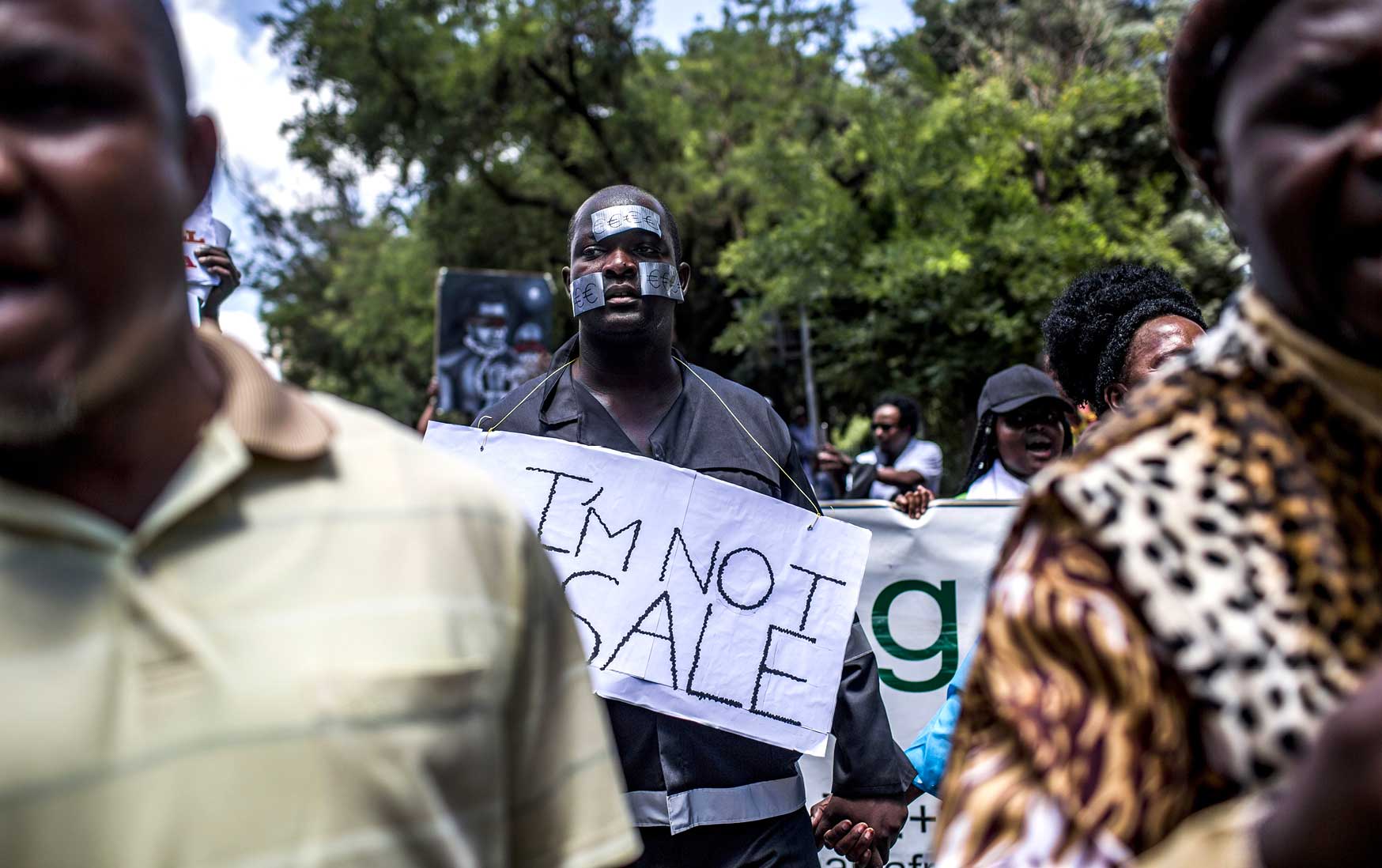
The Attorney General Alliance-Africa Programme (AGA-Africa) has been working with justice institutions and relevant stakeholders in nine African countries to aid in the identification, investigation, and prosecution of such cases. AGA-Africa carries out training programmes and seminars on human trafficking and shares best practices on how to protect and rehabilitate actual or potential victims. The workshops often involve multiple stakeholders because trafficking is a multifaceted crime that requires a multi-sectoral approach. Additionally, through specific programmes like the partnership with NBA/BAL and other sports organisations, AGA-Africa is targeting specific forms of child trafficking such as talent trafficking. This includes educating organisations on possible signs of trafficking, the importance of due diligence, and reporting.
Despite these strategies, there are still numerous issues plaguing the successful eradication of these crimes, as seen in the continual rise in trafficking cases and the profits to be gained from them. The pandemic put a strain on countries’ resources and opened additional avenues for traffickers, specifically the internet. The internet has helped traffickers widen their sphere of influence, allowing them to attract victims from multiple countries, and increasing the number of potential victims. The pandemic also worsened economic conditions, leaving families poorer and children even more vulnerable to trafficking.
The issue of porous land and maritime borders, coupled with high levels of corruption at these borders, as well as under-resourced border security, create easy avenues for trafficking to occur. Further, weak law enforcement due to either a lack of resources, expertise, or evidence leads to low conviction rates of these crimes in Africa.
Victims often do not seek help. This is due to fear of being emotionally blackmailed – victims are subjected to threats that their loved ones will be killed if they ever escape or reach out for help. Victims also do not come forward out of fear of being prosecuted for the crimes that they have carried out. This leads young people to enter long-term criminal careers, reducing the chances of bringing the traffickers to account.
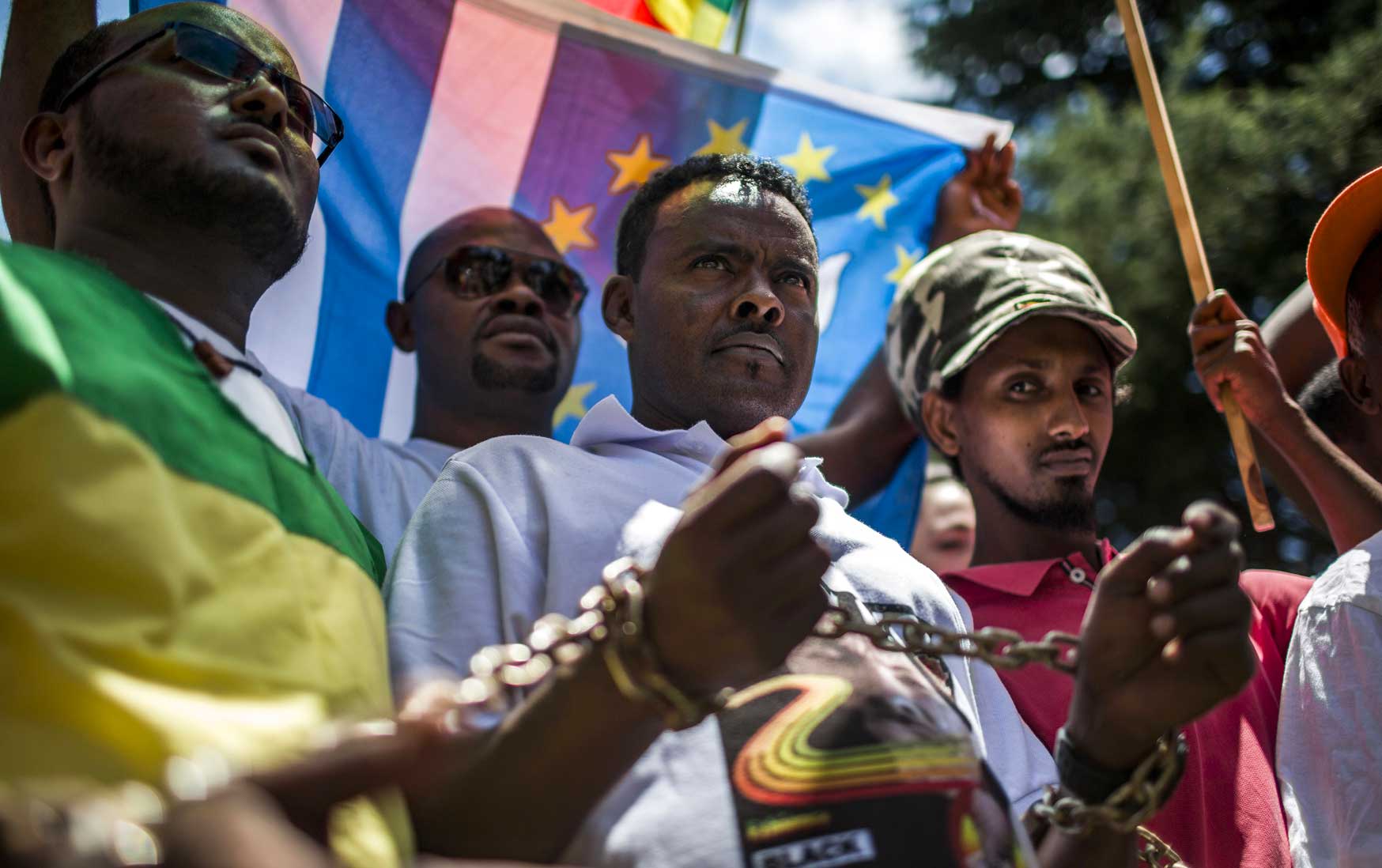
For child trafficking to be tackled, there must be a focus on the relationship between trafficking and crimes such as cybercrime and corruption. Growing numbers of children are sexually exploited online and there is increasing use of the internet for radicalisation and recruitment. Further, corruption often allows traffickers to bypass laws, especially when moving across borders. As such, specialised training on the forms that trafficking can take or how it is facilitated is required for all relevant stakeholders. Training on child trafficking should always touch on its links to other transnational crimes. Specialised anti-trafficking units should be put in place that involve stakeholders from various fields.
There also needs to be continuous sensitisation, advocacy, and grassroots community awareness campaigns. Research has proved that ignorance remains one of the leading drivers of human trafficking and smuggling. Victims are often brainwashed into thinking that the grass is greener on the other side. Tackling poverty, which is also one of the root causes of trafficking, requires the creation of more employment opportunities. Free and compulsory basic education for all must be enforced; parents should be encouraged to send their children to school, irrespective of their financial status, rather than sending them off to hawk and beg.
There should also be adequate support, referral, transfer, and provision for trafficked victims and survivors, as many of them need medical care, legal support, and safe shelter. These services are key in providing a safe and rehabilitative environment for victims, and to encourage more victims to come forward. While these suggestions are not exhaustive, they will go a long way in the fight against human trafficking and create room for more to be done. This is a fight that must involve the whole of government and society at all levels.
AGA-Africa’s subject matter expert, Dame Julie Okah-Donli, is also the Chairperson of the United Nations Voluntary Trust Fund for Victims of Trafficking in Persons (UNVTF) and the Executive Chair, Roost Foundation.

